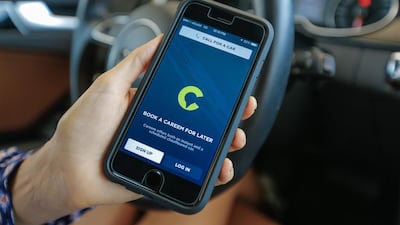Careem, which competes with Uber in the Middle East, is in talks with investors to raise $500 million, according to people familiar with the matter.
The Dubai-based ride-hailing company plans to raise the money as a precursor to a possible initial public offering and the fund-raising round could value Careem at as much as $1.5 billion, the people said, asking not to be identified because the discussions are private. The firm is also talking to potential financial advisers about the deal, they said.
__________
Read more:
Exclusive: Dubai's ride-sharing app Careem sees growth potential in 250 new cities, CEO says
Careem not actively considering IPO, aims to be profitable in couple of years, CEO says
__________
Careem, whose backers include Japanese e-commerce giant Rakuten and German automaker Daimler, was valued at a little more than $1bn in a 2016 funding round, making it one of the most valuable technology startups in the Middle East. The company is said to have held early talks with banks about a potential IPO in January.
Saudi billionaire Prince Alwaleed bin Talal’s investment vehicle Kingdom Holding, and Saudi Telecom’s venture capital arm STV are also investors in the company. A spokesman for Careem declined to comment.
Careem sees potential for growth in more than 250 new cities across the Middle East, North Africa, Turkey and Pakistan as it seeks to become profitable by 2020, chief executive Mudassir Sheikha told The National in an interview last week. The Dubai-based ride-hailing app, which is Uber’s largest rival in the Middle East, is looking to scale its presence in existing markets such as Egypt, Pakistan, and Saudi Arabia by serving second or third-tier cities in those geographies and enter new markets such as Oman, Algeria and Tunisia, Mr Sheikha said.
Careem, which was founded in 2012, currently serves 24 million customers across 14 countries. The company mainly operates in the Mena region from the UAE to Morocco using 800,000 drivers. It provides chauffeured rides in countries with insufficient public transport options where large parts of the population cannot or do not drive.

